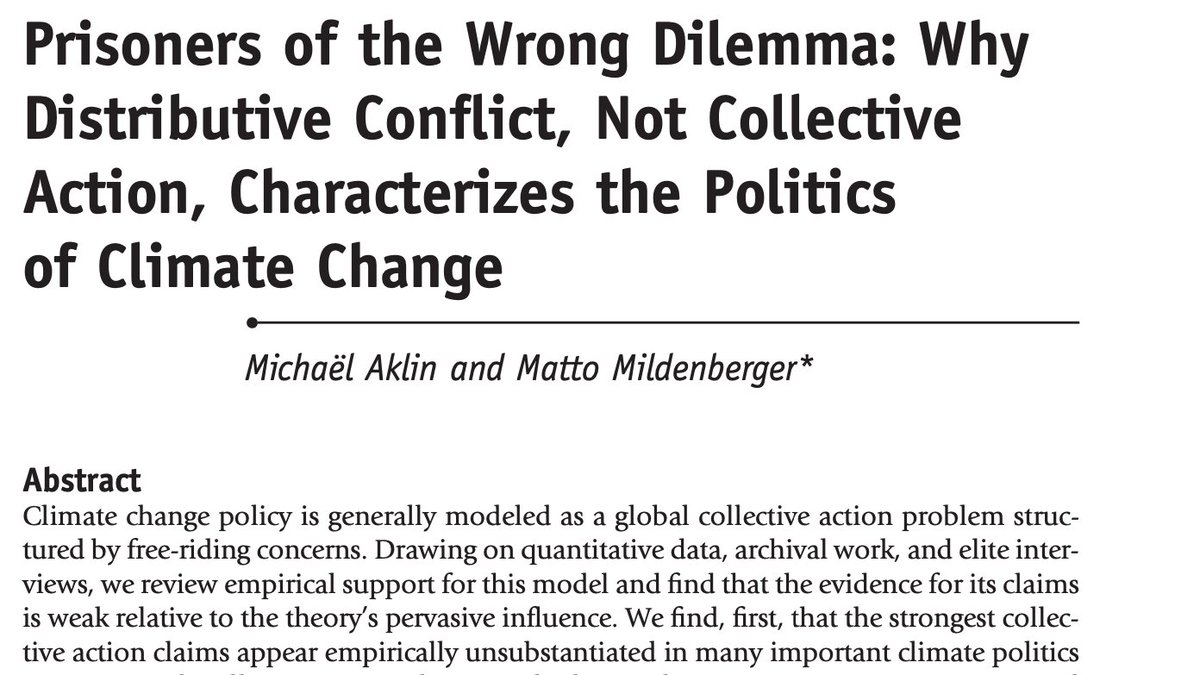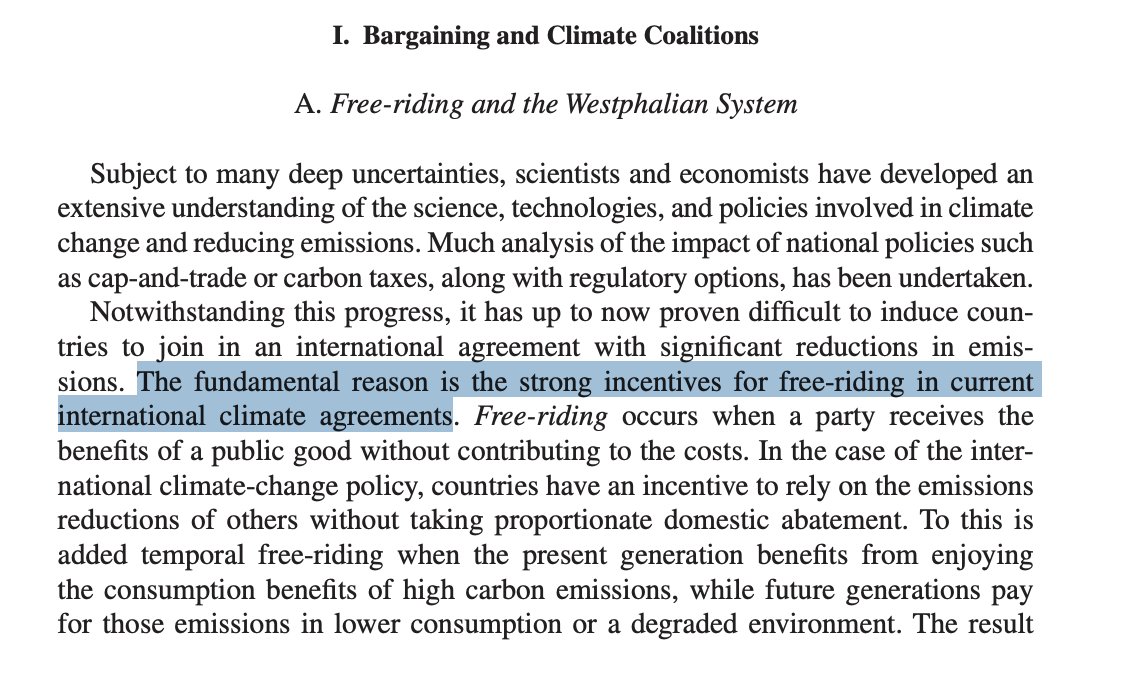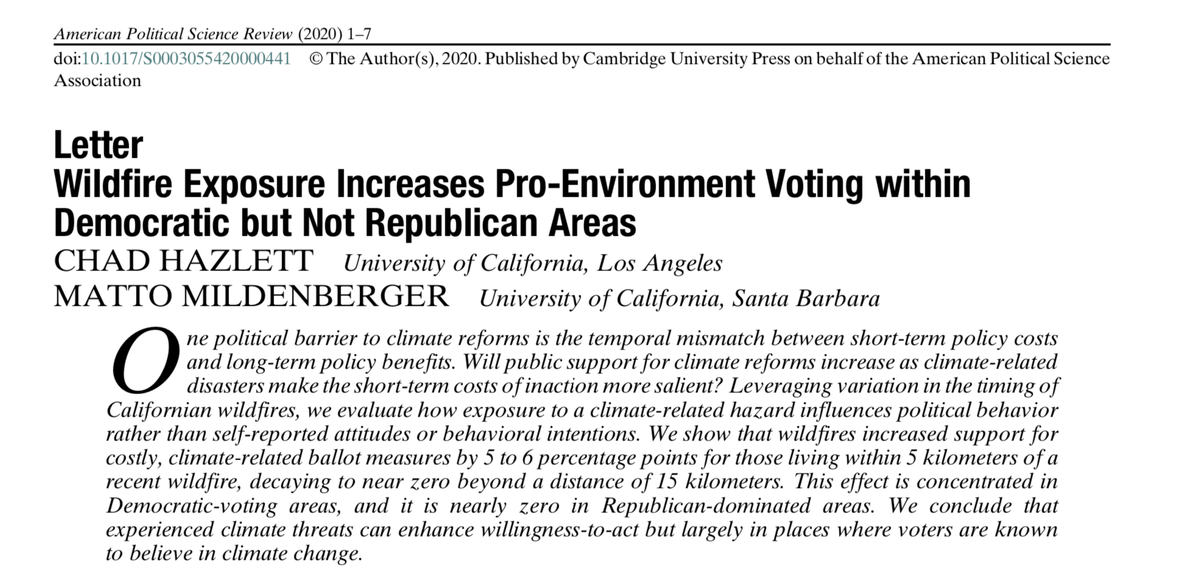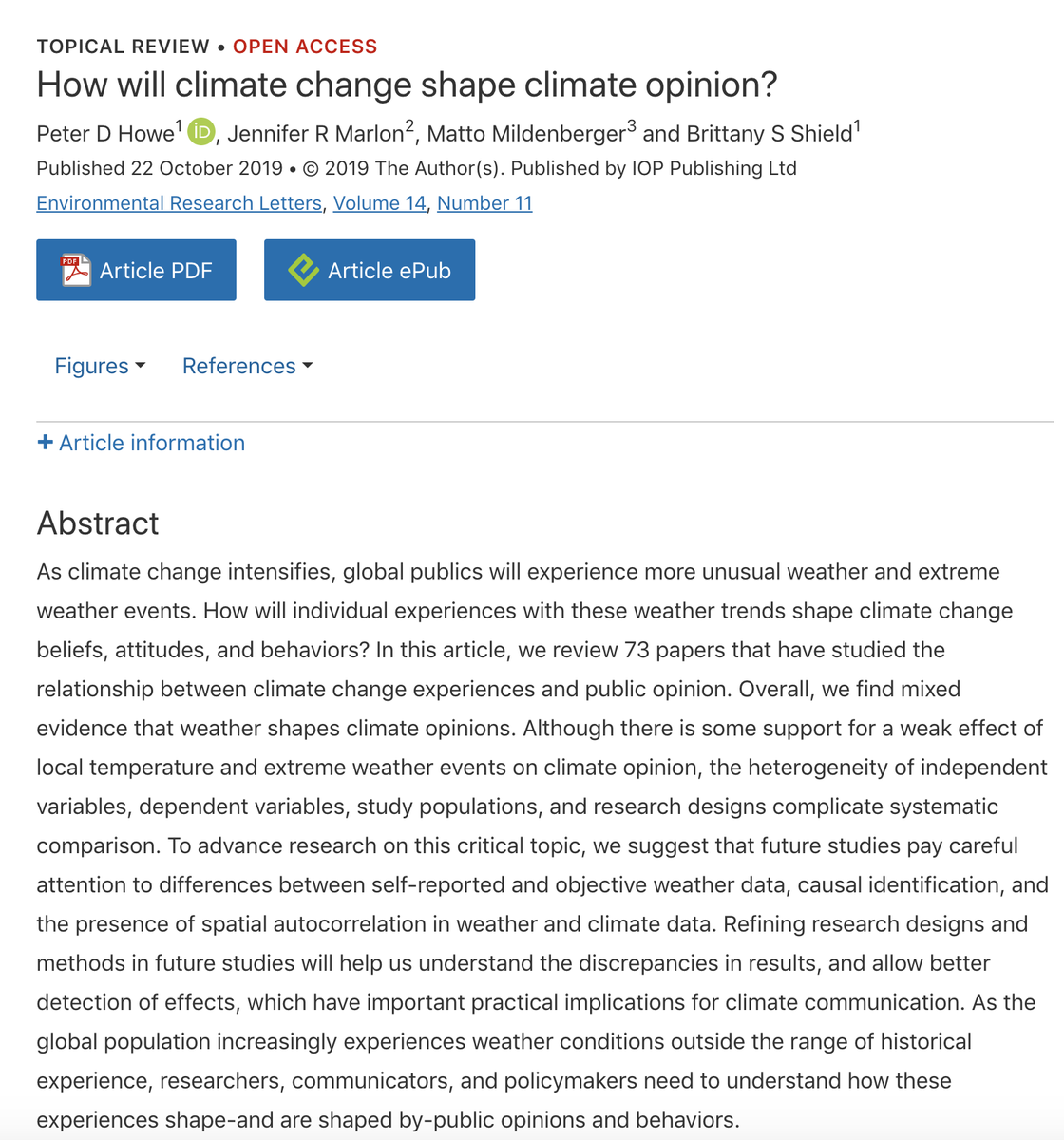Very interesting analysis by @GernotWagner. Where I disagree is that the DNC chickening out on climate policy, or similar reticence on the European left does not stem primarily from efforts to appease the far right 1/
https://twitter.com/GernotWagner/status/1136625180455964672
Preferences for climate reforms cross-cut existing political cleavages - and so left-leaning parties around the world also have carbon-intensive constituencies they need to accommodate. Green parties break through because they lack internal party constraints on the issue 2/
In my book, I call this the 'double representation' of carbon polluters. It is ubiquitous across countries and time. Until it gets disrupted, left parties will just just as much coddle their own constituents as they will coddle the right. 3/3
• • •
Missing some Tweet in this thread? You can try to
force a refresh













